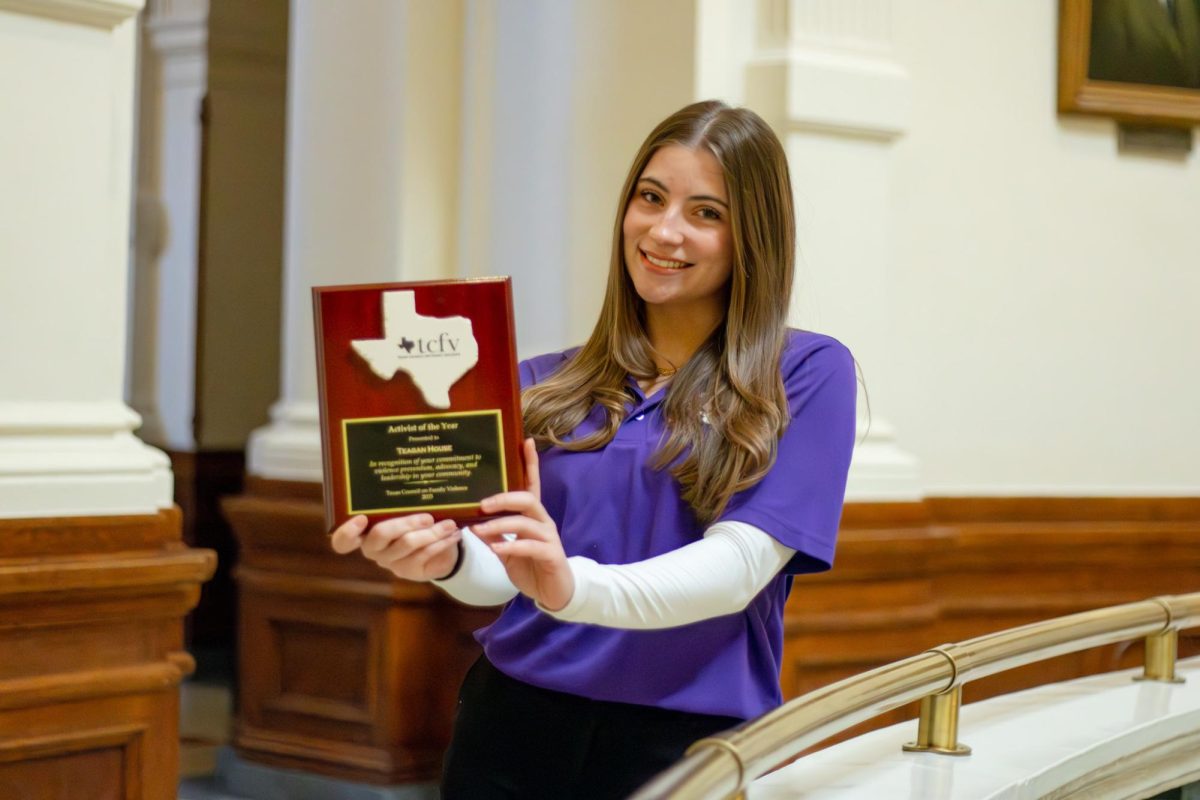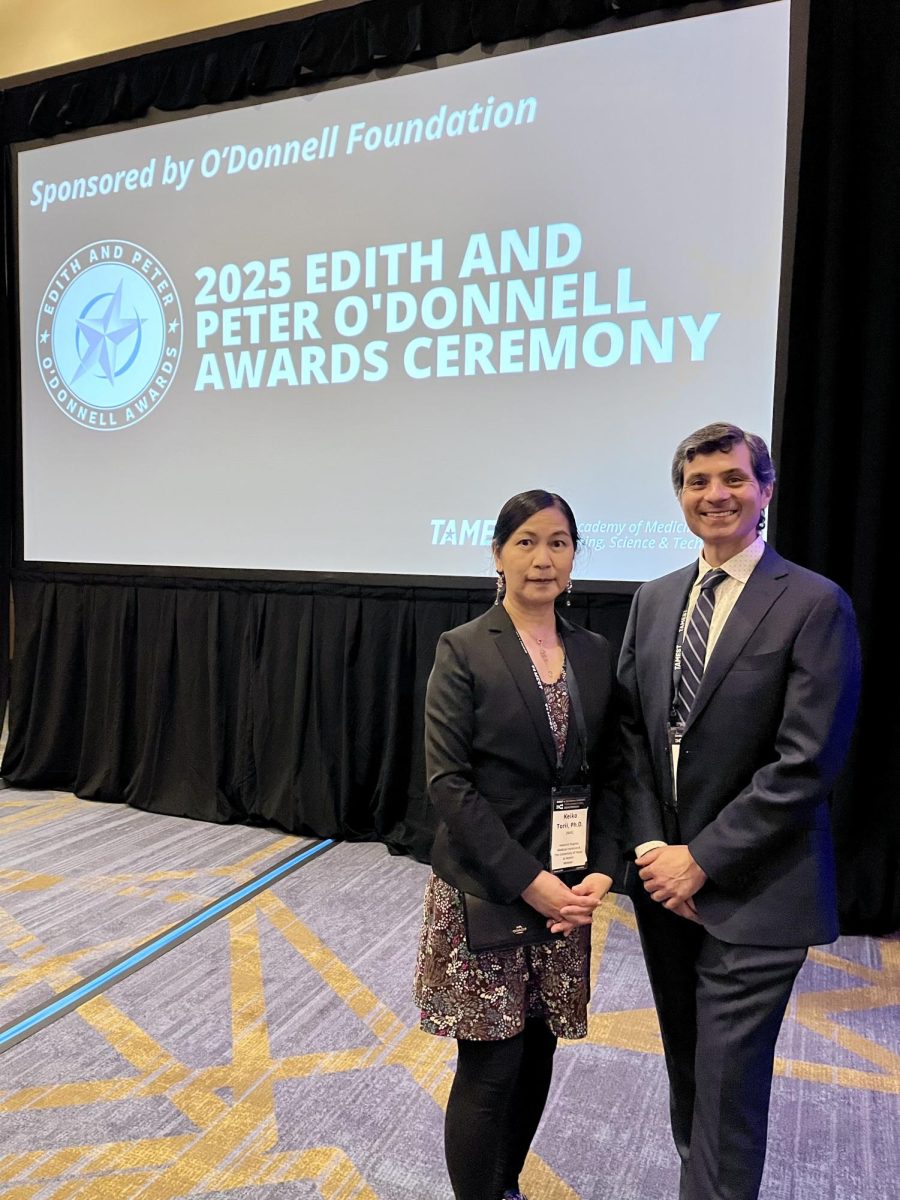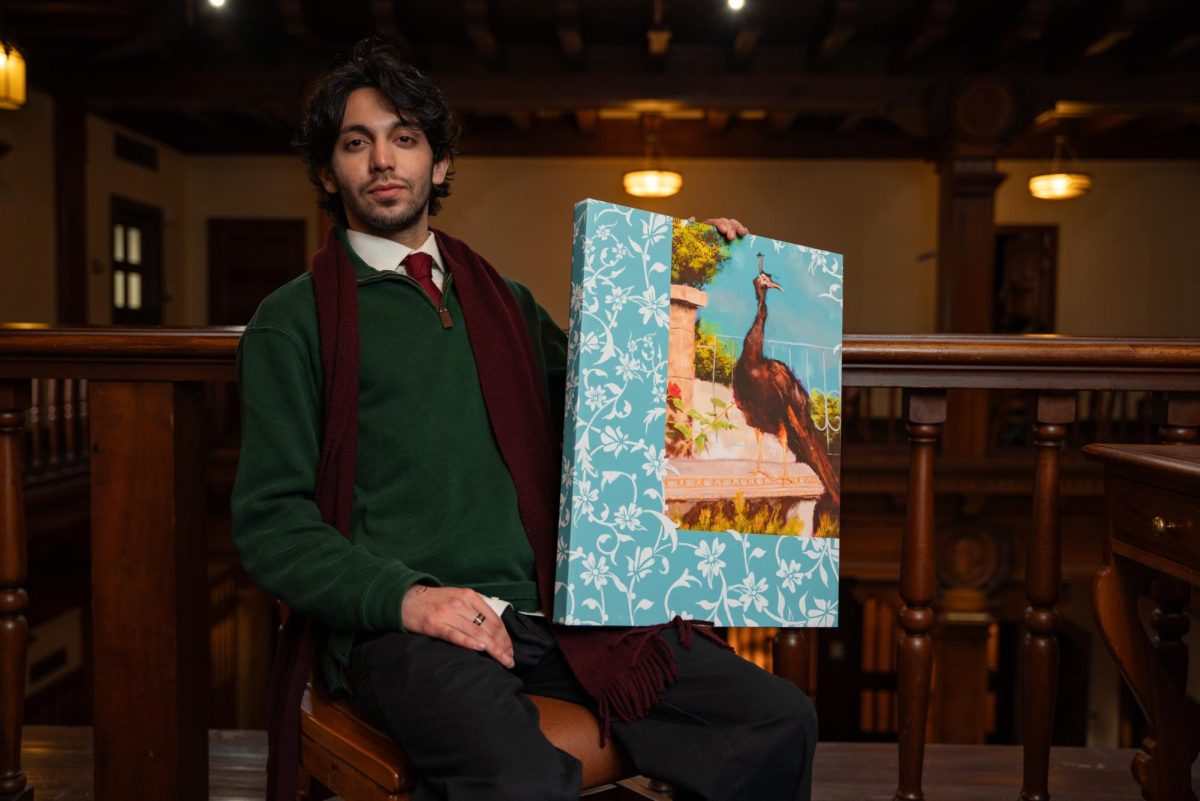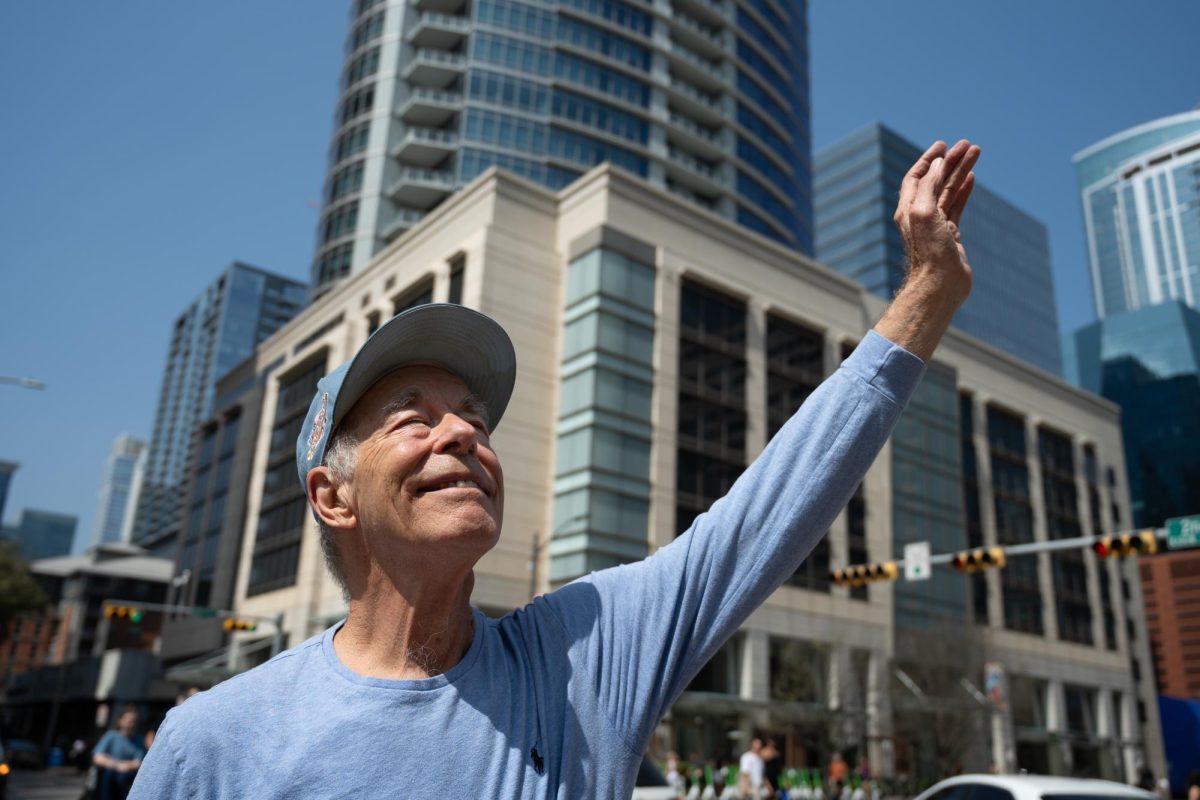Jannifer Wilkins spoke without words, her hands forming a language that Barbie Parker, her interpreter, decoded. Wilkins was born deaf, and has been singing since she was a child; since before she could remember. When asked about music, her hands moved with even greater dexterity exemplifying her passion for the subject.
Part of this passion inevitably came from her father, a professional jazz drummer who played gigs around the Houston area for years. Wilkins credits much of her passion for her studio arts major to him, as well as her overall love of music. Because of this upbringing, Wilkins enrolled in a Literature in Music class because it’s part of her degree requirements, and because she wasn’t interested in taking a music class that required instrument use.
“They do play music in the class, but for me, the teacher uses images as a substitute,” Wilkins said. “I’m given a visual image and then look for the meaning behind it and I also have an interpreter in the class that signs what’s being heard — like rhythms and expressions so I can have an understanding.”
Although Wilkins is 36 years old, before taking the class, she only knew the very surface of all types of music, and most of what she knew came from her father. She appreciates the music more now after learning about the different genres of music and their evolution. Wilkins also finds it interesting to see context and music in everyday life.
“It’s really eye-opening to see that music really shapes all aspects of life,” Wilkins said. “The way that music changes, remixes and grows to become popular over time really fascinates me.”
Her fascination with music has never just been in the classroom either. Music has surrounded her for years. Wilkins’ husband is also deeply rooted in the music industry, and like her father, is a drummer. He plays rock ‘n’ roll but in his younger years tried out R&B and soul. To help Wilkins hear what he’s playing, sometimes he’ll sign the songs to her so she can see what they’re like.
“It’s funny, when people say to my husband, ‘Why would you marry a deaf woman? Because she can’t even hear the music.’ My answer is that he can play as loud as he wants and I still can’t hear it,” Wilkins said.
Although she can’t hear the lyrics of songs, Wilkins can feel the rhythms in the vibrations.
“I can turn up the bass loud in my car, for my husband, and for my three kids,” Wilkins said. “I turn up the music at home. I’m not always involved [with the music] in a participatory manner, but it’s always there.”
She no longer uses a hearing aid because she feels more comfortable without one. Instead she focuses on seeing and feeling. She finds her days are more fulfilling without it, and feels natural without the aid of the device. Wilkins says she is glad UT has such accommodating assistance because she believes it’s more of a hassle than an aid to have one since she can’t understand words with one, and it’s also too much of a responsibility to change the battery.
“I came here for myself and my own education,” Wilkins said. “There are great interpreters here. People with other disabilities might be uncomfortable, but for me, it’s not uncomfortable.”
With interpreters such as Parker on campus, who has been interpreting professionally for the last 15 years, the hearing-impaired community has been provided with a sense of comfort on campus. Parker has had a desire to make a positive impact on the lives of others for years. This urge was what brought her to UT and eventually to Wilkins.
“[As an interpreter] I could learn every day and enjoy every day,” Parker said. “Interpreting is a skill — it’s my profession — and you have to have manual dexterity to interpret while someone is speaking.”
This connection between interpreter and student has made it so that both sides learn every day about the community, and for Wilkins, this specifically concerns her love of music.
“I have other ways of enjoying the music life, by watching the people singing in American Sign Language, feeling the vibrates of the beats and I also enjoy watching the musical movies,” Wilkins said. “I look for a deeper meaning in the visuals [instead of the sound].”




















